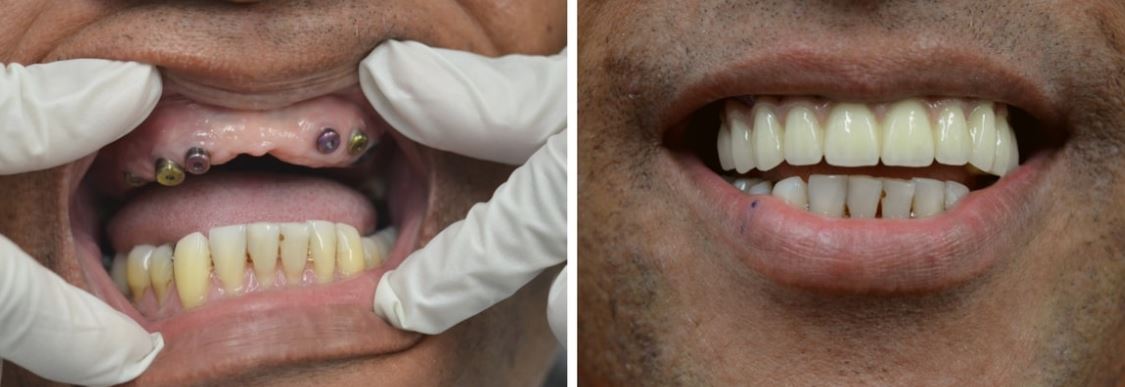Full and Partial Dentures in New York
Best Services with a New York Denture Specialist
Dentures are one of the solutions to replace missing teeth for individuals who have lost teeth for various reasons. They offer a way to restore function and appearance, allowing people to eat, speak, and confidently smile. 209 NYC Dental has offered denture services to patients in Manhattan and beyond for decades. Schedule your consultation today, or read on to learn more about getting dentures in New York.
- The Difference Between A Full And Partial Denture
- What Are Flexi-Particles?
- Can I Have Temporary Dentures Until I Receive Implants?
- How Long Will It Take To Feel Comfortable Wearing A Denture?
What Are Dentures?
Dentures are removable dental appliances designed to replace missing teeth, from one to all, in either the upper jaw, lower jaw, or both. A dentist and dental technicians closely work together to craft dentures. A denture specialist near you can make removable artificial teeth from a range of materials, such as:
- Acrylic
- Resin
- Nylon
- Metal
- Porcelain
Dentures in New York are a popular solution for individuals who have lost teeth due to decay, gum disease, or injury. They are customized to fit the individual’s mouth and can match the appearance of natural teeth, ensuring a comfortable and natural-looking smile.
Types of Dentures
There are many types of dentures to suit different needs and budgets. Traditional options include:
- Removable complete dentures
- Replacing all teeth in the jaw
- Partial dentures
- Filling gaps when some natural teeth remain
Materials such as acrylic resin, metal, nylon, and porcelain offer different benefits in terms of durability and comfort. For more stability, implant-supported dentures anchor to dental implants, offering a secure fit. The many types available allow customization, whether replacing one tooth or an entire arch. Understanding the different types of dentures available in New York and their specific benefits can help patients make informed decisions about their oral health needs.
Traditional Removable Dentures
Traditional removable dentures have been the most common choice for replacing multiple missing teeth for decades. Dentures have different designs and functions to address the various needs of our patients. Before we discuss how traditional dentures are different, we would like to point out their commonalities:
- Removable: Traditional dentures are designed to be removable, allowing for easy cleaning and maintenance.
- Custom Fit: They are custom-made to fit the unique contours of each patient’s mouth, ensuring a secure and comfortable fit.
- Artificial Teeth: Our New York denture specialists near you make traditional dentures with artificial teeth made from durable materials like acrylic or porcelain. We choose these materials for their natural appearance and ability to withstand daily wear and tear.
What makes them different is the number of teeth they can replace, placement time, and material used.
Complete or Full Dentures
Full or complete dentures in New York replace all teeth in the upper or lower jaw and rest on the gums. They are typically held by suction or adhesive and are made mainly from acrylic resin. They can feel bulky, may slip, and often need adhesives.
Removable Partial Dentures
We recommend removable partial dentures when you’re missing some but not all of your teeth. They fill gaps between your remaining natural teeth and stay in place in your mouth using clasps.
Most partial dentures in New York have a gum-colored acrylic resin base that mimics the appearance of natural gum tissue. This base supports your artificial teeth and helps maintain the structure of the surrounding tissues and mouth. Based on the material used, they can be classified as follows:
- Metal partial dentures are stabilized by a metal framework that attaches to existing teeth.
- Acrylic partial dentures are more affordable, lightweight, and easy to adjust but less durable.
- Flexible partial dentures, crafted from nylon or thermoplastic, offer the most comfort and aesthetics, but they may lack the strength of metal options.
Unlike flexi-partials, metal and acrylic partial dentures offer a bonus. In most cases, New York denture specialists can add new artificial teeth to them in the future.
Implant Dentures vs. Traditional Dentures
With the developments in implant dentistry, implant-supported bridges, and dentures, also called Snap-On or Snap-In-dentures, are becoming the leading alternatives for replacing multiple missing teeth. Like traditional dentures, they come with various options, from removable partial or full dentures to fixed permanent dentures.
Traditional and implant dentures in New York replace missing teeth but differ significantly in how they are supported and overall function.
Snap-In-Dentures
Snap-in dentures offer numerous advantages, primarily because dental implants provide support rather than merely resting on the gums.
- Support and Stability: Snap-in dentures in New York anchor to surgically-placed dental implants in a patient’s underlying bone, providing a solid foundation and exceptional stability and security.
- Chewing Efficiency: Allow for significantly improved chewing power, similar to natural teeth, enhancing overall oral function.
- Bone Health: They help preserve the jawbone and prevent the development of gum disease, which can occur with missing teeth. They also maintain the structure of the soft tissues, gums, and facial appearance.
- Comfort: Generally more comfortable and natural-feeling than traditional options, as they integrate with the existing bone structure.
- Cost: Typically, they are expensive denture options, reflecting the advanced technology and materials used.
- Maintenance: Regular dental check-ups and cleanings are required to ensure long-term oral health.
- Durability: Dental implants are long-lasting. Getting dentures in New York may require occasional relining or replacements to maintain a proper fit.
Traditional Dentures
- Support and Stability: Traditional dentures rest directly on the gums, so they may feel loose and rely on a denture adhesive for retention. They may also slip or shift, especially lower dentures, affecting speaking and eating. Denture adhesives can help secure them and improve stability. This is particularly helpful for lower complete dentures, which tend to be more prone to movement.
- Chewing Efficiency: A limited ability to chew due to potential movement.
- Bone Health: Can contribute to jawbone loss over time.
- Comfort: Can feel bulky or uncomfortable, especially when first getting used to them.
- Cost: Compared to other tooth replacement options, such as dental bridges or implant dentures, dental implants are generally more affordable in New York, making them accessible to a broader range of patients.
- Maintenance: Requires daily cleaning and soaking to maintain hygiene.
- Durability: May be less durable than snap-in-dentures, potentially requiring relining or replacement over time.
Which Denture is Right for You?
The best choice depends on several factors: your individual needs, preferences, budget, and dental health. Consider the following factors:
- Oral Health: Evaluate the condition of your gums and jawbone. Healthy gums and bones are crucial for the support of dental implant dentures.
- Number of Missing and Remaining Teeth: Consider how many teeth are missing. Partials or a fixed bridge might suit those with a number of remaining teeth, while a full denture or all-on-4 is ideal for replacing all teeth in the jaw.
- Budget: Options range from affordable plastic dentures in New York to pricier Snap-On solutions. Check your insurance and financing options.
- Lifestyle: Fixed bridges and permanent dentures offer more stability for active lifestyles.
- Appearance and Fit: Properly fitted new dentures provide a natural look, comfort, and function, thus improving self-confidence. Discuss all your replacement options with a dentist to find a natural-looking solution.
- Long-Term Goals: Implant-supported solutions help preserve jawbone health, while traditional options may need more frequent adjustments.
- Timeframe: Immediate dentures provide a quick fix, while implant-supported options will take several appointments or even months.
By consulting with the denture specialists near you at 209 NYC Dental, you can make an informed decision tailored to your needs for optimal oral health, budget, and satisfaction with your replacement teeth.
Care and Maintenance Tips From New York Denture Specialists
Proper care and maintenance of dentures are crucial to ensure their longevity and comfort. Here are some tips:
- Daily Cleaning: Clean your dentures daily using a soft-bristled brush and mild soap or a specialized denture cleaner to eliminate food particles and plaque. Soak your dentures in a cleaning solution to remove stains and maintain their freshness.
- Avoid Harsh Chemicals: Do not use harsh chemicals or abrasive materials, including toothpaste, to clean your dentures, as they can cause damage.
- Storage: When not in use, store your dentures in a protective case to avoid dropping and prevent accidental damage.
- Avoid Hard Objects: To avoid damaging your dentures, avoid biting or chewing on hard objects like ice or candy.
- Regular Dental Visits: Visit your dentist regularly for check-ups and adjustments to ensure your New York dentures fit well and remain in good condition.
How Much Do Dentures Cost?
Understanding the cost of dentures is crucial for planning your dental care and budgeting effectively. The cost of dentures depends on various factors, including the materials used, the dentist’s expertise, location, and the type of dentures you want. It’s essential to weigh the benefits of investing in higher-quality dentures, which can offer better fit, comfort, and longevity against the initial cost.
Denture Cost Without Insurance
The cost of dentures can be a significant consideration for those without dental insurance. In the USA, the price of dentures can range from $1,200 to over $25,000 for premium options like all-on-8. The average price for traditional dentures in New York hovers around $2,500.
Denture Cost with Insurance
The cost of dentures can vary significantly, but having dental insurance can help alleviate some of the financial burden. If you have dental insurance and see an in-network dentist, the cost of denture will be determined by the insurance contract.
Many dental insurance plans cover a portion of the denture cost, typically ranging from 40% to 60% of the total cost. This percentage depends on your policy. It’s crucial to review your insurance plan to understand what is covered, including any limitations or exclusions. Some plans may cover only specific types of dentures, such as complete or partial dentures, while others may include coverage for immediate dentures or implant-supported dentures in New York.
Additionally, insurance might cover related procedures, such as extractions or adjustments, which can further reduce out-of-pocket expenses.
Payment Options
At 209 NYC Dental, our denture specialists near you aim to make dental care both accessible and affordable through a variety of payment options:
- We accept a wide range of PPO insurance plans to help manage treatment costs.
- Interest-free financing is available through CareCredit, allowing you to spread payments over time.
- We accept Health Savings Accounts (HSA) and Flexible Spending Accounts (FSA) as payment methods.
- Interest-free pre-payment plans are available for added convenience.
- Payments can be split among several visits to ease the financial burden.
- Our office accepts all major credit cards for a smooth and hassle-free payment process.
Restoring Your Mouth with NYC Denture Specialists
Choosing the right type of restoration to replace missing teeth is essential for restoring your mouth’s functionality and transforming your smile. Our board-certified denture specialist, Dr. Jin Wang, can expertly assess if you qualify for fixed dentures. Meanwhile, Dr. Ifraimov is renowned for his mastery of removable dentures, ensuring comfort and a natural appearance.
Don’t wait to regain your confidence and improve your dental health. Schedule a consultation with our skilled NY denture specialists near you today and take the first step towards a healthier, more vibrant smile.
FAQs
What are the options for one or a few missing teeth?
There are several options to restore one or a few missing teeth. Implant crowns and bridges provide a permanent option, where a titanium post is placed in the jawbone, offering stability and a natural look. Dental bridges use adjacent teeth as anchors to fill gaps with artificial teeth, ensuring a fixed and durable restoration. Consulting with a dentist will help you choose the best solution for your needs.
What are flexi-partials?
Flexi-partial is another term for a flexible partial denture. These dentures are made from very lightweight, flexible materials, resulting in a partial denture that’s much more comfortable to wear. Flexi-partials also don’t use metal clips to attach, and they come in different base colors to match your own gum tissue, so they’re invisible while worn. Plus, they’re metal-free and hypoallergenic, with no chemicals used in traditional rigid plastic dentures.
I plan on extracting teeth; can I have same-day dentures?
Yes, we provide temporary or immediate dentures that we fit on the same day your teeth are extracted. These dentures consist of replacement teeth attached to a gum-colored base, offering stability and function during the healing process, which lasts several weeks as the implants integrate with the jawbone. 209 NYC Dental crafts same-day dentures in our New York dental office near Bloomingdale’s. So, you can wear them immediately after tooth extraction.
How long will it take me to feel comfortable wearing dentures?
That depends on the type of denture you have and how often you wear it. Partial dentures don’t take as long to adjust to as full dentures. Also, full dentures attached to implants are typically easier to get used to than removable dentures that rely on adhesives to remain in place.
To adjust as quickly as possible, wear your dentures as often as directed and try reading aloud to let your tongue and gums get used to the feeling and pressure of the dentures. Most patients are fully adjusted within less than two weeks.
Whether you are interested in removable or snap-on-dentures in New York, learn your options by booking a free consultation with Dr. Ifraimov, our top prosthetic denture specialist near you.
What Our Patients Are Saying
With over 1000 reviews from all over the web with an average rating of 4.9 we are proud to be in the Manhattan Dental Elite.
 Our History
Our History
 Our Providers
Our Providers
 About Us
About Us
 Blog
Blog
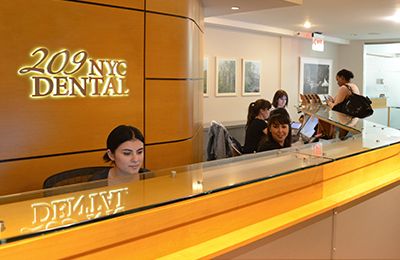 Contact us
Contact us
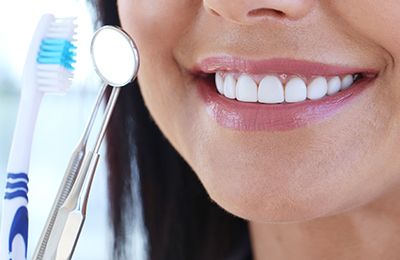 Diagnostic & Preventive
Diagnostic & Preventive
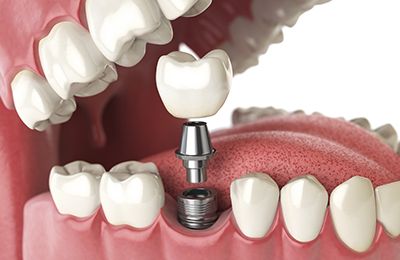 Implant Dentistry
Implant Dentistry
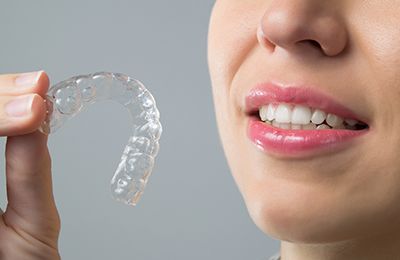 Clear Braces - Invisalign
Clear Braces - Invisalign
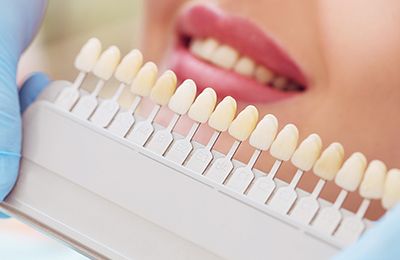 Cosmetic Dentistry
Cosmetic Dentistry
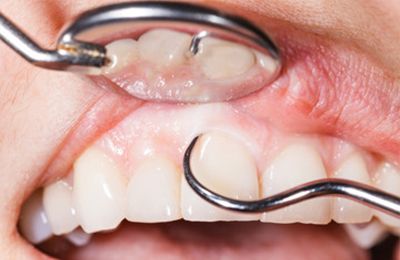 Periodontics
Periodontics
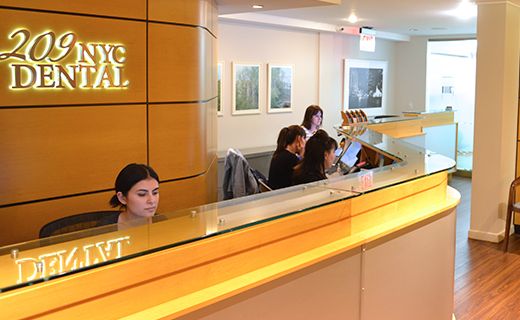 Patient Forms
Patient Forms
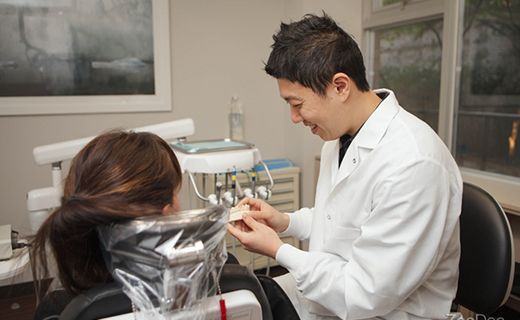 Payment Information
Payment Information
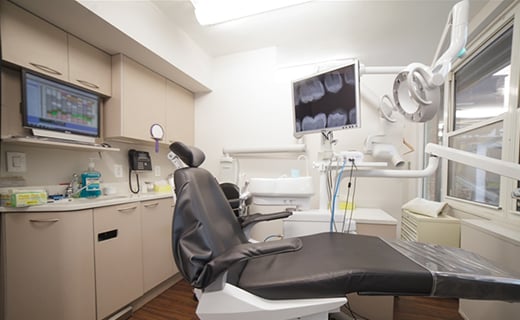 Insurance Options
Insurance Options
 CareCredit Dental
CareCredit Dental
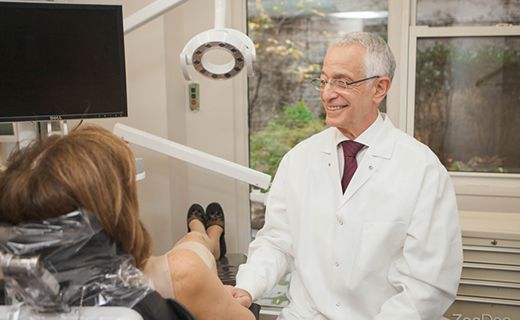 Appointment Policy
Appointment Policy
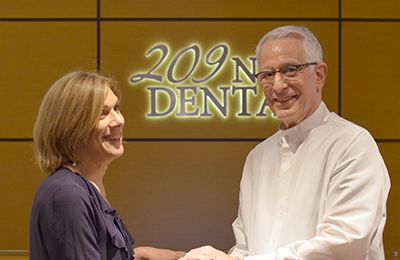 Free Consultation
Free Consultation
 Complimentary Teeth Whitening
Complimentary Teeth Whitening
 Teeth Whitening
Teeth Whitening





